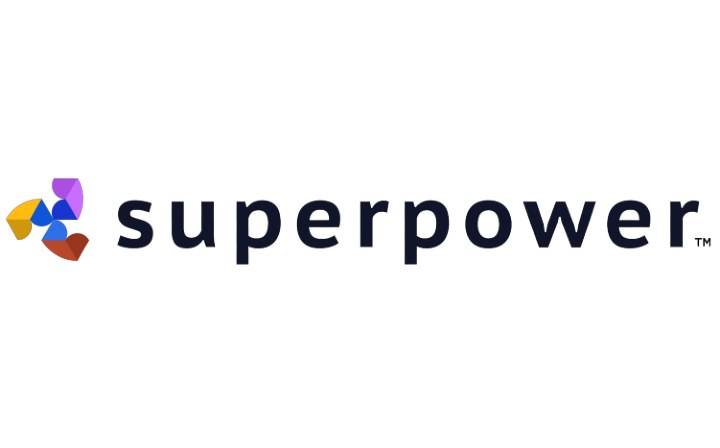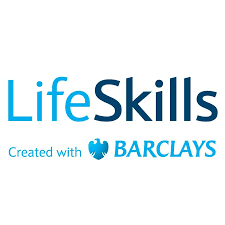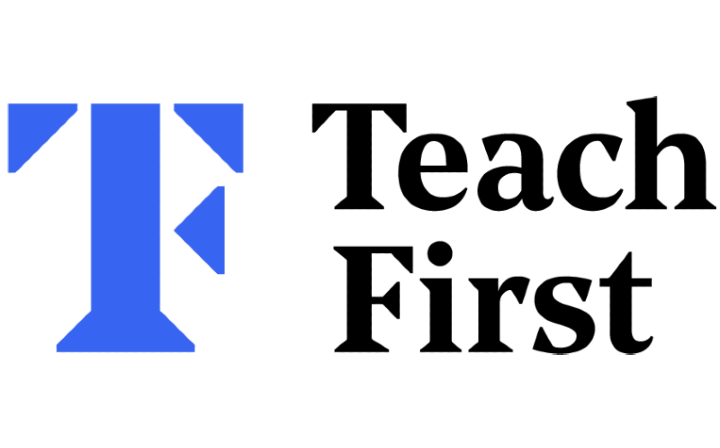Explore the ScaleUp Annual Review 2023
Select a section to expand and explore this year's review..
CONTENTS

Introduction 2023

Chapter 1 2023
The ScaleUp Business Landscape

Chapter 2 2023

Chapter 3 2023
Programme
Superpower [2023]


Talent and Skills
Impact for scaleups

10x
faster recruitment

317
scaleups supported

62
NPS scoring for candidates and 56 for business clients

22.7%
average annual growth in employment

244
candidates secured roles
Key sectors














Newly endorsed by ScaleUp Institute, Superpower supports the development of the talent pipeline for scaling businesses using a dual model enhancing the skills of job seekers, while at the same time supporting recruiters to find the right talent for short term and project based placements.
For jobseekers, Superpower’s platform supports the acquisition of skills through assessing skills gaps; supporting access to learning and development opportunities, and matching them with placement opportunities. Its skills-based approach identifies skills gaps from early-stage careers through to management level. Some job seekers have successfully accepted placements with up to a total of eight different scaleups via the platform.
Its personalised offering is based on its AI model which recommends courses, mentors and potential opportunities to members based on a range of 80 to 2,000 factors. Job seekers can take recommended short online courses via Futurelearn and Coursera; link with mentors via Digital Boost; and accept opportunities with scaleups. On average, each of its 28,000 members receives 84 course recommendations and 46 masterclass recommendations.
For scaleups and scaling businesses, Superpower assists by helping them recruit the right talent flexibly and efficiently for project related positions. The recruitment process is streamlined, by providing them with shortlists of candidates within 72 hours – 10x faster on average than traditional methods. Using a simple five-click process, scaleups post the roles they need to fill, and the platform’s AI capability undertakes the skills diagnostic to match skills to candidates. Candidate selection, interview offers and job offers are made via platform’s dashboard with a single click. As part of the service, scaleups can opt in for a subscription service that supports skills development for its existing employees.
The platform’s AI is trained using employer-led skill taxonomies and covers all sectors – the top sectors profiled on the platform include professional, scientific & technical skills along with finance & insurance, and information & communication. Superpower prioritises scaleup needs in its development, using focus groups and research centred on scaling companies.
Superpower works with organisations across the scaleup support ecosystem including growth hubs, local authorities and agencies like London & Partners and has established referral mechanisms with other organisations, venture capital firms and programmes like the endorsed by SUI Barclays Eagle Labs and Founders4Schools. It also received grant funding from Innovate UK which allowed them to train their AI algorithms specifically on what was important to scaleups and more specifically fintech scaleups.
To date, Superpower has supported 317 scaleups and helped 244 candidates secure roles. In total, 28,000 members have accessed recommendations to courses and masterclasses specifically relevant to their personalised skill development needs and 4,195 business staff and job seekers have been trained. On average, scaling businesses achieve 22.7% annual growth in employment after working with Superpower.
As a ‘service’ offering, rather than a structured programme, Superpower is supporting scaleups to flexibly access talent and skills as they grow, while also developing the future talent pipeline and enhancing understanding of the opportunities that exist with scaling businesses. The ScaleUp Institute is pleased to endorse this model of scaleup support and we are working with other service providers and will be assessing more offerings that break down the barriers to accessing talent in 2024.

Programme
Careers & Enterprise Company [2023]


Talent and Skills
Impact for scaleups

90%+
schools and colleges in the UK are in a Careers Hub with 4,000+ Enterprise Advisers

400
Strong network of ‘Cornerstone’ employers are working directly with Careers Hubs

2,876
Trained Careers Leaders acting as a strategic lead and focal point for businesses

x2
More likely to report awareness of apprenticeships between years 7-11
Key sectors














The mission of the Careers & Enterprise Company (CEC) is to help every young person to find their best next step from education and into the wider world. The CEC links schools and colleges to employers through its network of more than 4,000 Enterprise Advisers.
Advisers come from the business world and actively support 2,876 Careers Leaders in schools with training, insights and resources. Set up by the government in 2015, more than 4,300 schools and colleges have now joined CEC’s network and adopted the Gatsby Benchmarks of good careers guidance.
Their expanded Career Hubs now cover 90% of schools and colleges in England. Each hub is built on a dynamic partnership between schools, colleges, local authorities and other stakeholders working with local employers. They give young people the opportunity to connect closely to local skills and economic needs, while helping businesses grow their talent pipeline. Participation in a Careers Hub has resulted in a significant increase in business involvement in careers activities with 81 per cent of participating schools and colleges having at least 10 businesses actively involved per year, while less than half (48%) of peers without a hub report this level of engagement.
The near universal adoption of the Gatsby Benchmarks of careers education has created a national measure of performance. Through CEC’s digital tools, schools and colleges are reporting progress across the Benchmarks in all parts of the country, with the most disadvantaged schools having reported the greatest improvement.
Participating schools and colleges report that employer engagement and young people’s experience of workplaces now exceed pre-Covid levels. The latest analysis shows that 93 percent of students had at least one workplace experience last year, up from 82 percent in 2018/19. Nearly a quarter (23%) of Enterprise Advisers who have been in the role for three years or more report that their employer has recruited apprentices from local schools as a result of this engagement.
The talent pipeline is further supported through CEC’s network of 400 cornerstone employers, including scaleups, who actively promote the use of employer insights in education. In addition, its Strategic Partnership Fund invests in Greater Manchester and West Midlands Combined Authority, working in partnership with them to boost local growth and support ambition.
The Careers & Enterprise Company has also focused on enhancing support to schools and colleges including help with transition and those students facing the biggest barriers. Its programmes of support include:
- New this year, the CEC has designed an initiative targeting primary schools. Research shows that young people adopt a stereotypical view of employment opportunities from a young age. Running until March 2025, it connects businesses and primary schools, upskilling teachers and giving them vital insights to help them challenge these outdated stereotypes. This will support 600,000 children in 2,250 primary schools, boosting aspirations and increasing understanding of growing industries.
- In 2023, the ‘Teacher Encounters’ programme was launched. This pilot initiative gives subject teachers the opportunity to meet with local industry to gain insights and understanding of skills needs. This knowledge is then incorporated within their curriculum teaching to the benefit of both pupils and employers.

Programme
Debate Mate [2023]


Talent and Skills
Impact for scaleups

235
Primary and secondary schools covered in the last 12 months

5383
Students reached per teaching week

88%
of pupils more likely to put ideas forward when working in a group and 81% more confident speaking up in class

88%
pupils feel the skills gained would help them succeed in future

99%
of teachers believe that students are better at critically responding to arguments
Key sectors














Debate Mate’s school debating clubs improve social mobility and enhance key employability skills. Active in areas of high social deprivation since 2007, the programme equips participants with valuable, transferable skills including teamwork, communication, core confidence, judgement, problem solving and critical and creative thinking.
The programme is developing a range of in demand future skills seen as vital by scaleup leaders. Its curriculum supports and enhances critical and analytical thinking as they require students to analyse a topic and produce arguments for and against it. Students also have to exercise judgement and decision making and may have to argue for a side that they don’t necessarily agree with, which requires critical analysis, problem solving, and empathy. In a 2023 survey, 81% of respondents said they felt more confident speaking up in class and 88% said they were more likely to put their ideas forward when working in a group as a result of the programme.
In the past year, Debate Mate has reached over 5,000 students per teaching week. It is active in 235 primary and secondary schools in six cities across the UK and is focused on delivering programmes in those primary schools which have had more than 25.5% of pupils on free school meals for the past six years and 26.9% in secondary schools. In 2022-23, it also ran its Virtual Core Programme for the second year, reaching parts of the country where it does not have a physical presence. This year, nine schools took part in weekly debate training virtually, as well as a national debating competition, the Debate Mate Cup, where they otherwise would not have had the opportunity to do so. Following a successful pilot in Wales in 2022, this year, Debate Mate piloted a 10-week hybrid programme in Grimsby in partnership with the NSPCC and delivered a second programme in Wales, this time for 17 weeks. Participating students ranked among the top in the UK and subsequently competed in the Grand Finals of the Debate Mate Cup.
The programme has been widely recognised in 2023. It was awarded the Southwark Stands Together Award for its work in schools in the London borough and its Debate Box programme won the Royal Borough of Kensington and Chelsea’s Community Engagement Award. Debate Mate also delivers a series of summer programmes to disadvantaged young people outside the UK, equipping schools with skills to run their own debate clubs. Participating countries include Mexico, Zambia, Kenya, Nepal and Rwanda. The programme’s international reach is further extended by Debate Mate Virtual which has more than 2,500 participating students from 40+ countries.
The development of Debate Mate Schools is supported by reinvesting profits from the programme’s parent company Debate Mate Ltd which designs and delivers communication and leadership training. Debate Mate Ltd is transitioning to a tech-first company, using artificial intelligence to power skills training and give a global reach.
Through the Boardroom to Classroom initiative, Debate Mate Limited facilitates curated interaction between students and employers. Participants share their debating expertise and benefit from careers advice and workplace insights. Debate Mate students also took part in the Bank of America Intern Challenge. More than 200 Bank of America interns took part, collaborating with over 100 students on the UK core programme. Working together, students developed and pitched innovative ideas focusing on their local community. This facilitated meaningful conversations around careers, higher education and other aspirations for both the students and the interns.

Programme
F4S [2023]


Talent and Skills
Impact for scaleups

3,900+
Educators supported

28,000+
hours volunteered

600,000+
Young people engaged with employers

30,962
Maths4Girls Students Supported

8,000+
connections made via Digital Boost

£2m+
value of Digital Boost support hours delivered
Key sectors














F4S is an educational-tech charity that works with volunteer business leaders from early stage scaling and scaleup businesses to give children and young people the opportunity to meet the people who are creating the jobs of tomorrow.
Alongside its core activities, its webinar service breaks down barriers to engagement and helps to connect students and business volunteers based in rural locations. A series of webinars for educators guide them through F4S’ online platform and provide advice on how to make the most out of the encounters for their students.
Through participating young people are equipped with an entrepreneurial mindset, social and problem-solving skills along with an understanding of growing sectors with a focus on STEM and business and finance. It gives insights into roles available in these sectors, career paths and educational and vocational routes into these careers.F4S also runs the ‘Maths4Girls’ (M4G) programme, which invites educators to invite female (and male) role models who work within maths-based sectors such as finance, computing and STEM (Science, Technology, Engineering & Maths) into the classroom. 83% of students said the programme raised their optimism about their future, 78% cited a positive impact on their well being and sense of belonging and 100% of volunteers surveyed said that they would recommend Maths4Girls to colleagues and friends.
This year, F4S launched ‘Sustainable’ in partnership with WWF UK and Villiers Park Educational Trust. Part funded by the Evolution Education Trust, this free programme is aimed at 14–18-year-olds and equips teachers and career leads with the tools to empower students to build a sustainable career and thrive in a future green economy. Last year more than 2,000 young people met with volunteer role models working in sustainability, gaining insights about core skills and different pathways into a career in the sector.
A suite of support is also available through F4S’s ‘Digital Boost’ programme. Delivered in partnership with BCG Digital Ventures, Digital Boost equips leaders and employees of small businesses and charities with the digital knowledge to grow their organisations. Digital mentors connect with people who want to upskill, delivering support through one-to-one sessions, workshops and tailored recommendations for action.
Digital Boost has now made 8,100 connections and established many long-term relationships and 2,300 people have participated in workshops. Support given has an equivalent value of at least £2m. Approximately half of those supported identify as female and more than 35 per cent are from ethnic minority backgrounds.

Programme
Google Digital Garage [2023]


Talent and Skills
Impact for scaleups

800,000+
Trained since 2015

20
Webinars provided each week

40+
Hours of learning through online courses

10,000
Hours of free 1:1 support or mentoring on offer
Key sectors














Google Digital Garage, part of Grow with Google, was set up in 2015, to provide free digital skills training for individuals as well as small and scaling businesses. Participants learn how to use online tools and social media as well as maps and data analytics.
Since 2015, the Google Digital Garage has visited more than 500 locations across the UK and trained more than 800,000 people to grow their business or expand their career. The programme offers online courses; in-person and virtual webinars and skills certifications; and through its ‘Google Career Certificates’ initiative has also funded 10,000 scholarships across the UK, which will be distributed by Grow with Google partners. The Google Career Certificate Scholarship Program gives learners access to take the courses covered by the certificates, on topics like UX design and data analytics, free of charge for those who are in receipt of the scholarship. Through its partnership with Digital Boost it connects small businesses and charities with Digital Garage coaches and Google employees who are offering 10,000 hours of free 1:1 support and mentoring.
Following the success of virtual webinars during the coronavirus lockdown Google is offering in-person and virtual sessions and has expanded the series of courses available, including a series of training in tools and resources for remote working. It delivers around 20 webinars and trains more than 500 people each week.
In response to YouGov data in 2022 revealing that lack of time is the number one barrier stopping people from learning skills that could take their careers and businesses to the next level, Google launched the Skills To Go campaign which led to its website relaunch. The content now includes full-length courses and short training sessions,which range from 5 to 20 minutes for those with limited time to complete while commuting, over a coffee break or in between appointments.

Programme
LifeSkills, created with Barclays [2023]


Talent and Skills
Impact for scaleups

1.3m+
young people participated in first half of 2023 alone

98%
of participants reported improved knowledge and skills

89%
of students felt more motivated to achieve in their academic and vocational studies

86%
report a better understanding of how to tackle problems

85%
felt better able to make career decisions
Key sectors














Barclays Lifeskills is designed to give young people skills, knowledge and confidence. It brings together educators, businesses, young people and their parents, providing interactive tools for young people to learn in their own time or with their parents through its dedicated parents and families’ section.
Participants can access financial education and employability skills along with important transferable skills such as solving problems and being creative, proactive and enterprising. The programme also introduces young people to a day in the life of a business through its virtual work experience element along with a CV builder tool that helps them stand out when applying for jobs and online practice assessment tests. Tailored content has been designed to support young people leaving care as well as those with Special Educational Needs.
The programme has now helped more than 16 million young people prepare for the workplace since its launch in 2013, with more than 1.3 million participating in the first half of 2023 alone. Participation levels remain high with 90% of UK secondary schools, 87% of universities and 79% of UK further education colleges registered for the programme.
The programme is regularly evaluated for its impact. In the past year, 98% of participants reported improved knowledge and skills and 87% felt more positive about their future. The vast majority (89%) felt more motivated to achieve in their academic and vocational studies and 85% had higher and broader aspirations. Decision making and problem-solving skills also improved with 86% reporting a better understanding of how to tackle problems and 85% feeling better able to make career decisions.

Programme
Teach First: Careers Leader Programme [2023]


Talent and Skills
Teach First’s ‘Careers Leader’ programme provides fully funded training to improve employability and careers provision in schools to ensure every child can reach their full potential. Targeted at schools serving a high proportion of disadvantaged young people, Teach First’s Career Leader programme has worked with over 400 Careers Leaders nationally since it began in 2015. Teach First has also been a recognised provider of careers leader training through the Careers and Enterprise Company since 2018.
Through the programme, Career Leaders are supported to design, implement and evaluate a revised careers strategy and detailed action plan targeting all staff and pupils. This allows Careers Leaders to assist the school in their progress towards all eight Gatsby Career Benchmarks and the Quality in Careers Standard (QiCS), delivering immediate impact.
The programme is tailored to meet the needs of each school and provides a foundation for long-term improvement through blended learning modules including in-person training, online learning and personalised support. To enhance flexibility, the programme offers a number of blended in-person and virtual training days; virtual seminars of 1- 1.5 hours during the school term and virtual meetings with their Teach First Careers Expert at key points throughout the year. Training has been developed in collaboration with experts from different sectors to ensure content is relevant and up to date.
Schools that have partnered with Teach First through the Careers Leader programme have reported positive outcomes. 99% of surveyed programme members have reported a change in their confidence in identifying key priorities in their careers’ strategies and data from 60 schools in the 2019 cohort showed an increase in the average number of Gatsby benchmarks achieved per school from 3.1/8 at the start of the programme to 4.2 at programme completion.
The ScaleUp Institute will continue to watch closely to see how improvements in the programme deliver practical results for those leading careers in education.
The Careers Leader programme is definitely worth it. It’s great for upskilling and it will help you to focus on exactly where you want to take your school. For the second year running, we’ve got all eight of the Gatsby Benchmarks.
Emma Nolan, Careers Leader; Chadsgrove School and Specialist Sports College

CONTENTS

Introduction 2023

Chapter 1 2023
The ScaleUp Business Landscape

Chapter 2 2023

Chapter 3 2023


Share